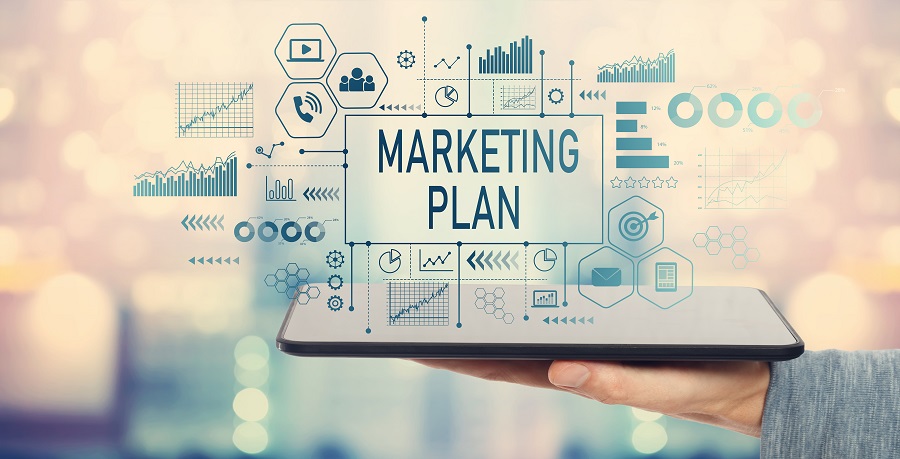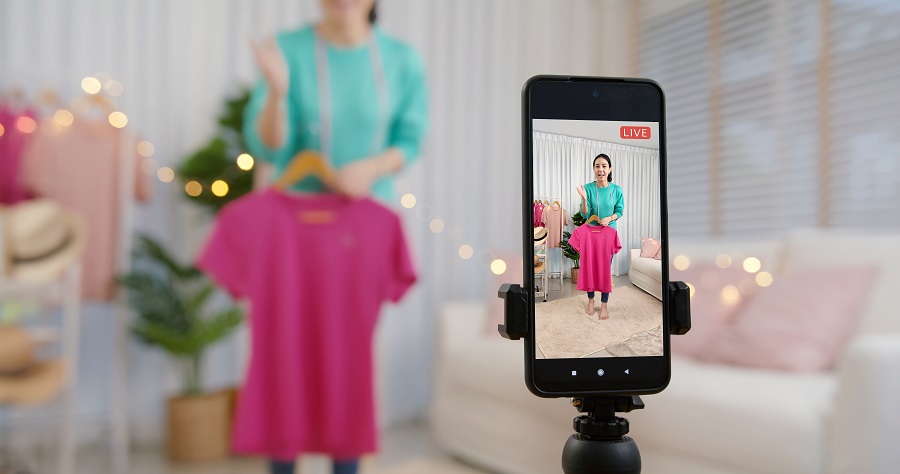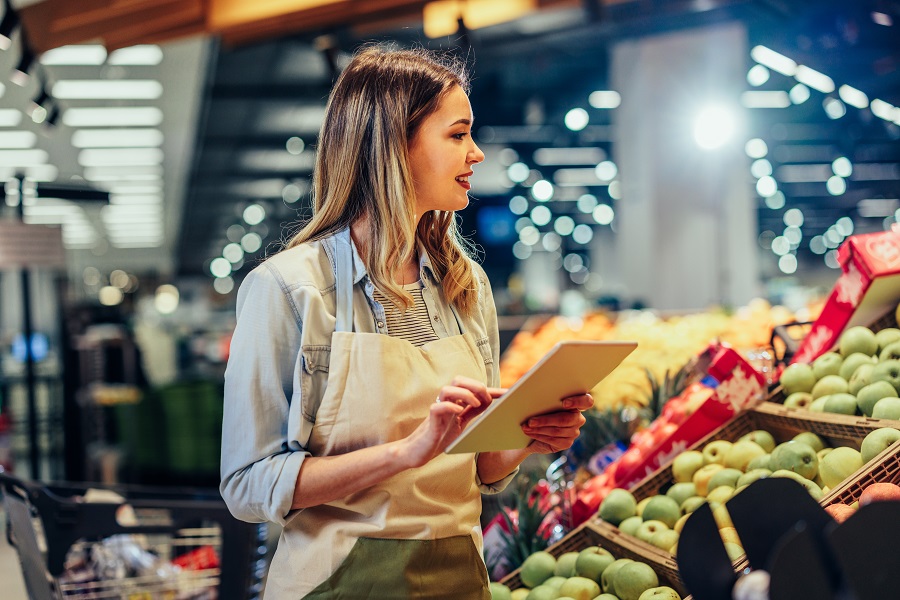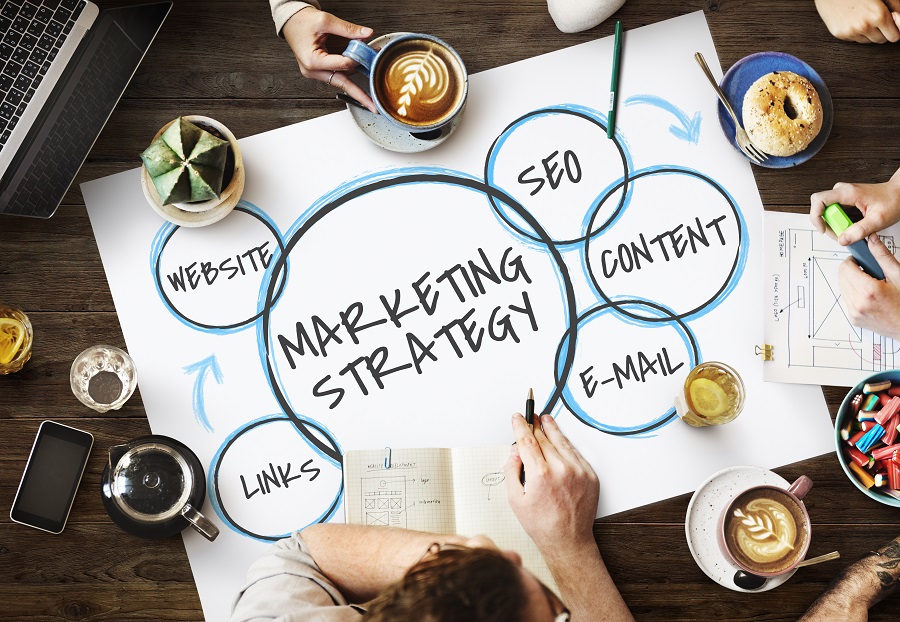13 Jun

With customers having endless shopping options these days, retailers must find creative ways to attract shoppers and get them through the doors. This blog covers a variety of practical marketing and promotional strategies you can implement to boost sales, increase customer traffic, and stay competitive in today’s retail landscape. Whether you operate a small corner boutique or a large chain store, the ideas discussed here can help you find new customers, retain existing ones, and ultimately grow your business.
What is Retail Marketing?
Marketing for retail refers to all the activities involved in promoting and selling products or services to consumers through retail stores and channels. The primary goal of retail marketing is to drive customer foot traffic into stores, incentivize shoppers to make purchases, and boost overall sales.
Retailers rely on various marketing strategies and tactics to increase awareness of their brand and products. They use the marketing mix – comprised of product, price, placement, and promotion – to reach and attract customers. This includes branding, creating the right product assortment, and competitively priced items, optimizing shelf and store layout, and running targeted promotional campaigns through advertising, loyalty programs, and social media.
Most retail marketers focus their attention locally within specific areas where their stores are located. While national brands implement broader multi-channel strategies, much of the day-to-day marketing operations for retailers involve optimizing in-store experiences, promotions, and events to attract customers within their immediate trade areas and neighborhoods.
The 4 Ps of Marketing
The 4Ps lie at the heart of any marketing strategy for retailers. They represent the core elements you need to consider when crafting your strategy for any business, including retail stores.
Product: This refers to what you actually sell. For retailers, the product includes not just the physical goods but also aspects like packaging, sizing, customer service, and warranties. Having the right products that meet customer needs is essential.
Price: Figuring out the right prices for your products and services requires research and testing. Pricing too high can drive customers away, but pricing too low can leave money on the table. Price also affects perceived value and brand image.
Place (Distribution): This involves making your products easily accessible to customers through the right distribution channels. For retailers, this means things like store location, layout, shopping experience, and even your online store. Distribution helps deliver your products directly to customers.
Promotion: This encompasses all your efforts to communicate with and persuade customers. For retailers, promotion includes things like advertisements, sales, marketing campaigns, loyalty programs, brand ambassadors, and social media. Promotion creates awareness and drives customers to take action.
Ideas for Retail Marketing and Promotion

While traditional methods still prove worthwhile, you must seek out creative marketing ideas for your retail business to differentiate its offerings, attract new customers and remain relevant. Innovation in retail experiences and go-to-market approaches can help stores connect meaningfully with target audiences. Developing new ways to meet customers’ changing needs and desires often requires thinking beyond standard efforts focused purely on price and product. Here are some of the best sales ideas for retail stores can employ to drive traffic and engagement:
Create an experience, not just a transaction
Give shoppers a reason to visit beyond simply buying products. Offer interactive displays, educational experiences, demonstrations, tasting sessions, classes, and workshops related to your products. Turn shopping into an event that stimulates the senses and leaves a lasting impression.
Run pop-up shops and special events
Set up temporary retail locations or host one-time experiences like trunk shows, product launches, or themed events to draw in new customers. They create buzz and give people a sneak peek at new products and offerings. This is a great way to test new locations and merchandise ideas.
Offer exclusive or limited edition items
Create products that are only available for a short time or in very limited quantities. This creates a sense of urgency and scarcity that encourages people to buy. Experiential retail also allows you to develop merchandise tailored specifically to local markets.
Encourage user-generated content
Provide incentives and opportunities for customers to create content about your store and share it through social media. Contests, how-to tutorials, and interesting stories can all go viral and bring your store free publicity. User reviews and photos also build trust and credibility with potential shoppers.
Invest in technology
Adopt technologies like virtual and augmented reality, digital displays, beacons, apps, and automated kiosks to enhance the shopping experience. Technology can help personalize the experience for individual customers, make shopping faster and more convenient, and improve staff efficiency.
In-Store Retail Marketing Ideas

While retail advertising, social media, and loyalty programs bring customers through your doors, what happens once they’re inside largely determines whether or not they make a purchase. The following in-store marketing examples aim to inspire you to think differently about how to market and promote your retail products and brand experience directly to customers the moment they walk through your door.
Offer personalized recommendations
Get to know your top customers by name and learn their preferences. Then, give them tailored recommendations when they walk in the door. This personal touch will make customers feel valued and increase their trust in your brand. You can also use past purchase history to send personalized discount offers and product recommendations by email.
Engage customers with interactive displays
Create eye-catching displays at prominent locations in your store that allow customers to physically interact with your products. For example, perfume testers, product samples, touchscreen kiosks, and interactive mannequins are all great options. The more senses you can engage, the more customers will remember your brand and products.
Offer coupons and promotions
Distribute coupons in-store, through mailers, and on your website to encourage customers to visit. Offer discounts for signing up for your email list or for referrals. Hold special sales events to drive traffic at certain times of the year. Make sure your promotions motivate customers to take action.
Run smart promotional campaigns
Timed promotions like flash sales, early bird discounts, and Monday morning sales can attract customers when store traffic is typically slow. Make sure any sales you run are targeted and data-driven to maximize revenue per promotion. You can also offer rewards for referrals to encourage your top fans to spread the word.
Cross-promote products
Display related or complementary products together in your store to suggest products customers might not have considered. Upsell accessories and add-ons for featured items. Having staff recommend complementary products to customers can also boost sales.
Provide in-store samples
Free food and beverage samples are a timeless retail tactic. In-store product sampling allows customers to try before they buy, improving the chances they’ll make a purchase. If appropriate for your products, consider letting customers test drive, try on, or demo your items in-store.
Offer in-store experiences
Go beyond just selling products by providing an experience for customers in your store via implementing the best in-store marketing campaigns. Host special events, workshops, or classes related to your products. Provide entertainment like music or interactive displays. The more you can engage customers’ senses in-store, the more likely they are to linger and spend money.
Hire and train passionate staff
Your frontline store employees are the main human connection customers have with your brand. Invest in finding and developing staff who are genuinely passionate about your products and excited to help customers. Then provide frequent training so they stay knowledgeable and motivated to give each customer a memorable experience. Happy and knowledgeable employees will reflect positively on your whole brand.
Cross-promote with other local businesses
Reach out to other businesses in your area about promoting each other. For example, you could distribute flyers with their info to your customers and vice versa. Partner with complementary businesses for joint promotions or discounts for each other’s customers. Collaborating with neighboring businesses expands your reach.
Digital Retail Marketing Ideas

Online channels now account for an overwhelming share of consumers’ shopping research and purchasing journeys, making it imperative for retailers to have an omnichannel approach that integrates both physical and digital storefronts. Here are a few promotion ideas for retail stores:
Optimize your website for search engines
Ensuring your website ranks high in search results is key for driving organic traffic. Make sure your pages are properly optimized with relevant keywords, a good internal link structure, and a responsive design.
Learn About: Easy SEO Growth Hacks to Scale Your Retail Business
Leverage social media
Platforms like Facebook, Instagram, and Pinterest allow you to connect directly with your target audience and promote new products. Foster engagement through contests, comments, and shares. Don’t forget to post consistently with high-quality visual content.
Send targeted emails
Email marketing for retail gives you access to your existing customer base to promote new products and sales. Create segmented email lists based on customer behavior and send targeted emails with the most relevant offers. Test different subject lines and cadences to optimize your open and clickthrough rates.
Run online ad campaigns
Advertising on Google, Facebook, and Instagram can help you reach new potential customers. Start with broad targeting and audience insights to identify your most receptive segments. Then, optimize your ads based on conversion data to improve performance over time.
Create engaging blog content
A company blog is a great way to build authority, establish your brand as a thought leader, and provide value to customers. Focus your content on topics relevant to the shopping and lifestyle needs of your audience. Over time, your insightful articles can help improve your organic search rankings.
Implement an influencer strategy
Partnering with social media influencers in your industry or niche can be extremely effective for exposure. Tap into influencers’ engaged audiences by providing products for reviews, sponsored posts, and other endorsement opportunities. Make sure to find influencers with aligned audiences and values.
Point Of Sale Retail Marketing Ideas
On-the-ground strategies at the point of sale can make a huge difference by surprising and delighting customers the moment they enter your store. Here are a few ideas:
Mobile advertising with branded store materials
Have custom-designed bags, ribbons, and labels with your brand logo and colors. This acts as a mobile advertisement for your store as customers use and see these items after leaving the store.
Digital signage to promote new products
Install digital screens near the checkout area to show off new products, flash sales, and special offers in an eye-catching way. You can easily update the content to keep it fresh.
Targeted offers at checkout
Use your cash register system to prompt customers with targeted offers as they checkout. For example, you could recommend complementary products to what they’re already buying.
Advertising on receipts
Include promotional messages, coupons, or discount codes on customer receipts. Studies show around 75% of people actually read the content on receipts.
Informative and stylish shelf signage
Use shelf tags and signage throughout your store to clearly mark prices and key product details. Make the signage stylish and minimalist yet informative to stand out from the crowd.
Eye-catching endcap product displays
Endcaps at the ends of aisles are highly visible to customers. Set up rotating seasonal or themed endcap displays to highlight top sellers and draw people into those aisles.
Generating buzz through product sampling
Offer free samples of food products, personal care items, or cosmetics to generate buzz and get customers to try your products at the point of sale.
Empowering staff to drive sales
Make sure your store associates are knowledgeable about new products and promotions so they can confidently recommend them to customers and drive sales at the POS.
Above all, the key is to tailor your promotions to meet customer needs. Study your target audience and design promotions that speak directly to their interests while providing tangible value and incentives. Implement a mix of marketing strategies that leave a lasting impression and foster customer loyalty. And most importantly, track the results of your efforts to refine and optimize your promotions over time.
To truly transform your retail business, an optimized and the best retail POS software is important. Hana Retail is a complete POS solution that helps retailers improve efficiency, gain insights, and provide an enhanced customer experience. Sign up FREE today!





